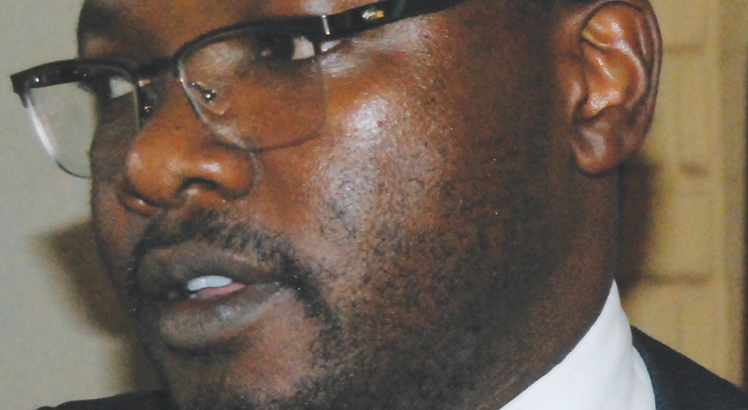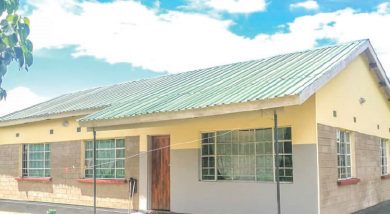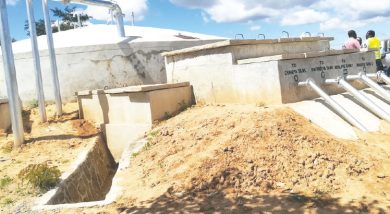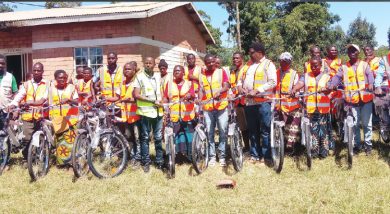3 judges on MLS radar
Malawi Law Society (MLS) has disclosed that it has compiled lists of cases pending before three judges as it continues with its campaign to speed up justice delivery locally.
MLS honorary secretary Chrispin Ngunde told Weekend Nation in an interview last week that the exercise is ongoing, but could not be drawn to disclose identities of the judges or the exact number of cases compiled so far.
But in a memo dated December 9 2021, MLS had asked its members to submit details of matters pending before one High Court Judge to substantiate claims that she is delaying cases.
Ngunde nonetheless indicated that the information gathered will be discussed during its annual general meeting (AGM) slated for this week.

Said Ngunde: “We have so far generated information concerning three judges and we have some important feedback from the Judiciary. At its annual general meeting [this week], MLS will discuss the information gathered so far and decide on what further contribution Malawi Law Society can make to assist in meeting the challenges facing the Judiciary.”
When contacted for a comment, High Court and Supreme Court of Appeal registrar Gladys Gondwe said the Judiciary is committed to putting practical measures in place towards clearing outstanding judgements.
“Resources permitting, Judges may have to go on judgement writing retreats to allow them to concentrate on the task. Otherwise, in a society which has become increasingly litigious, Judges assume new cases on a daily bases and the likelihood of one to get overwhelmed over time is high.”
Gondwe, however, said Judiciary was committed to the special task force’s undertakings, but stressed its stand on a holistic approach to the matter.
This viewpoint was also echoed by Supreme Court Justice Lovemore Chikopa who co-chairs a Malawi Judiciary-MLS Special Task Force on improvement of the Judiciary to deal with case delays in the country’s courts.
Chikopa argued that targeting High Court and Supreme Court of Appeal judges was a narrow approach as about 90 percent of court cases are handled by subordinate courts.
Five months after putting in place the special task force, MLS said it has decided to take what it calls a complementary role to the works of the task force based on its statutory mandate.
In the memo for cases pending before one judge, MLS had requested its members to submit details such as how long such matters have taken, cause Number, parties, status of the matter, date of last event in the matter, date set for next event in the matter and any information which counsel deemed necessary to the inquiry.
The memo, signed by Ngunde, stated that in order to complement the report of the Malawi Judiciary-Malawi Law Society special task force on improvement of the Judiciary, the executive committee had resolved to engage in a judge by judge
evaluation and analysis of works before the Judiciary.
Reads the letter in part: “The executive committee intends to develop a data base for each judge and engage each one of them directly or through other offices in order to ensure progress in the performance of each judge and ultimately each judicial officer.”
Gondwe also could not say how many cases are active across all courts in the country and the cost of clearing the backlog of cases saying the Judiciary is finalising its annual report which will be released soon.
But statistics from Centre for Human Rights Education Advice and Assistance (Chreaa) show that as of December 15 2021 there were 2 385 unconfirmed sentence prisoners at the time.
There were also a total of 2 015 remandees in the country’s prisons, 733 being general remandees, 1 136 homicide remandees and 146 foreign remandees.
In the 2022/23 financial year Judiciary has been allocated K14 billion out of the requested K20.7 billion representing 0.7 of the national budget.
Courts taking too long to hear cases or judges delaying to write judgements are some of the reasons for overcrowding in prisons.
In an interview on Thursday executive director for Chreea Victor Mhango pointed out that during the past three months at least 400 inmates were removed during an exercise by paralegals, Legal Aid Bureau and Judiciary to decongest prisons.
Said Mhango: “One of the reasons for delayed cases is lack of coordination amongst players in the justice system. For example, for a murder file to be moved from police to office of the Director of Public Prosecutions, the process is somewhat slow and the system
needs to be revamped.
According to Mhango some murder suspects have had to wait for as long as 10 years before their cases are heard which he said is a violation of human rights.
Mhango also observed that some judges retire before completion of their cases and that even though administratively such cases are transferred to other judges, sometimes such cases are not prioritised.
A report of Inspection of Prisons and Police Cells conducted by Malawi Inspectorate of Prisons in February, May, August 2020 and February 2021 found that prison holding capacity was overcrowded by 278 percent beyond the designed capacity
The report also shows that remaining prison population in 2020 after conducting overcrowding interventions stood at 13 900 with some inmates incarcerated in prison on homicide charges since 2013






One Comment